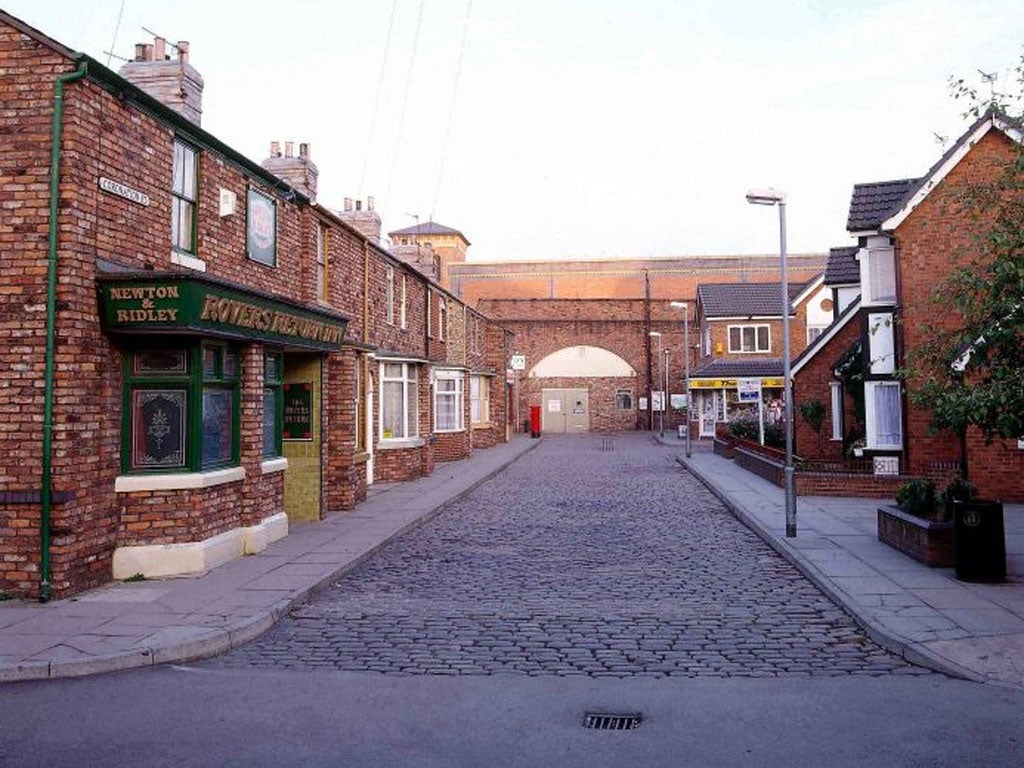What would Ken say? Coronation Street to profit from product placement

Your support helps us to tell the story
From reproductive rights to climate change to Big Tech, The Independent is on the ground when the story is developing. Whether it's investigating the financials of Elon Musk's pro-Trump PAC or producing our latest documentary, 'The A Word', which shines a light on the American women fighting for reproductive rights, we know how important it is to parse out the facts from the messaging.
At such a critical moment in US history, we need reporters on the ground. Your donation allows us to keep sending journalists to speak to both sides of the story.
The Independent is trusted by Americans across the entire political spectrum. And unlike many other quality news outlets, we choose not to lock Americans out of our reporting and analysis with paywalls. We believe quality journalism should be available to everyone, paid for by those who can afford it.
Your support makes all the difference.Residents of Coronation Street will rest easier knowing their money is no longer being held in a fictional bank, as British television's first primetime product placement is set to appear on the soap in the form of a Nationwide ATM.
The company's logo will appear on a machine in the soap's hitherto unbranded corner shop from 14 November for a period of four months. A branded sign will also appear outside the shop.
Broadcasters and advertisers have been slow to take advantage of the removal in February of a ban on product placement on British television.
Only a dozen deals were made in the first six months following Ofcom's introduction of the rules, the first being the appearance of a Nescafé Dolce Gusto coffee machine on ITV's This Morning.
Under the rules, alcohol, tobacco, and food and drinks which are high in fat, salt or sugar are among the products that are not allowed to be featured. Product placement is also banned from news, current affairs, consumer and religious programming.
Ofcom has predicted that the industry could be worth up to £30m a year.
As well as the financial benefits for television shows, many have argued that the introduction of real brands will add a sense of realism.
This first step in to primetime television could end the days when bar maids working at the Queen Vic in EastEnders were left guessing when a grunting Grant Mitchell ordered a "bottle of beer".
"In the 1960s and 1970s they did use real products. We ended up having to distort real life by taking them out, and by doing things like putting tape over a cereal," said branding expert Rebecca Battman.
Join our commenting forum
Join thought-provoking conversations, follow other Independent readers and see their replies
Comments